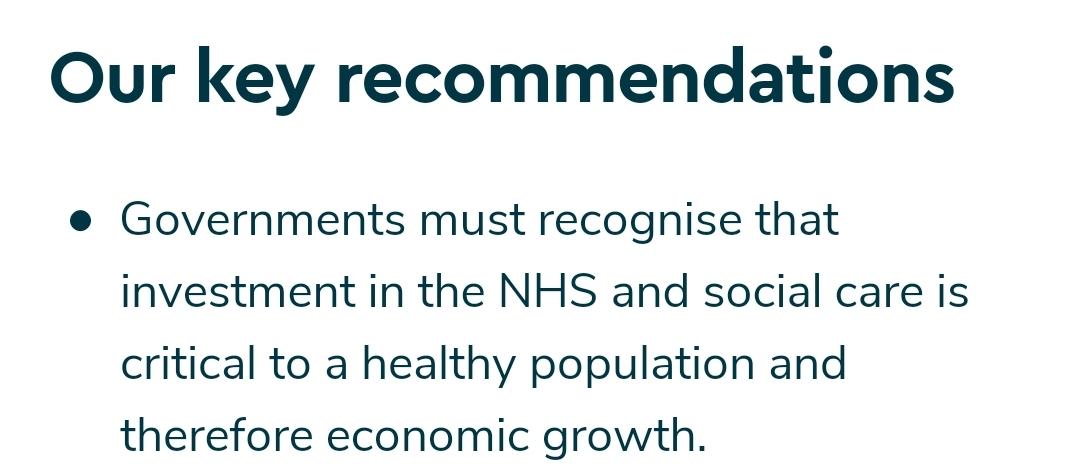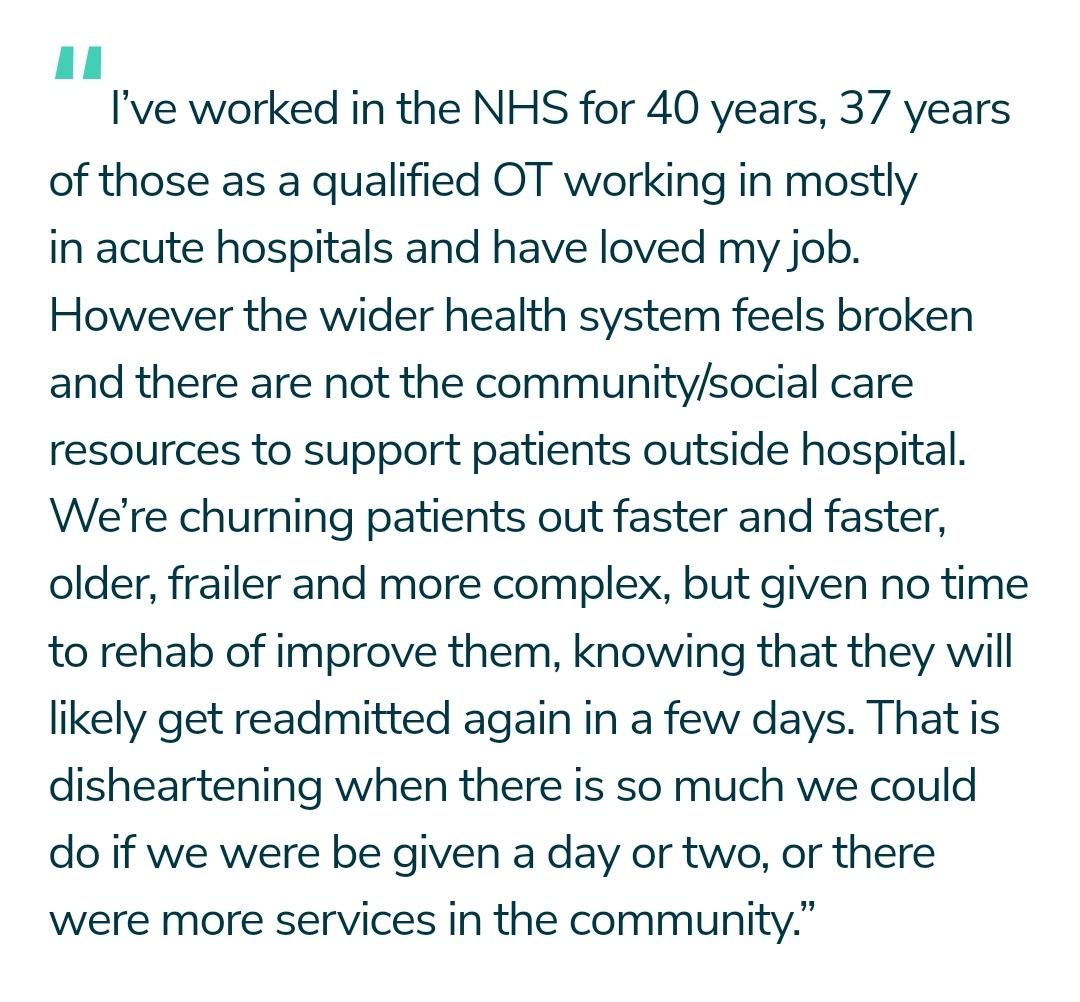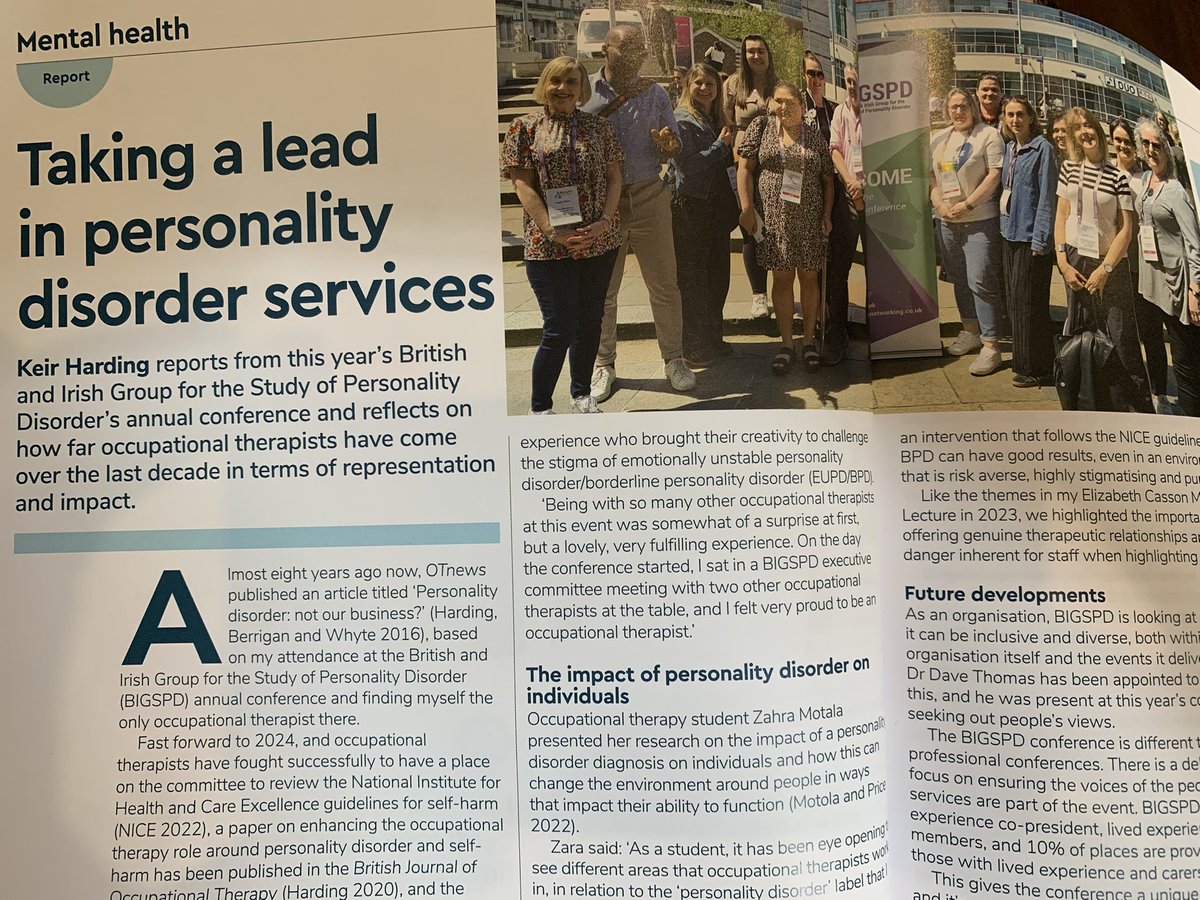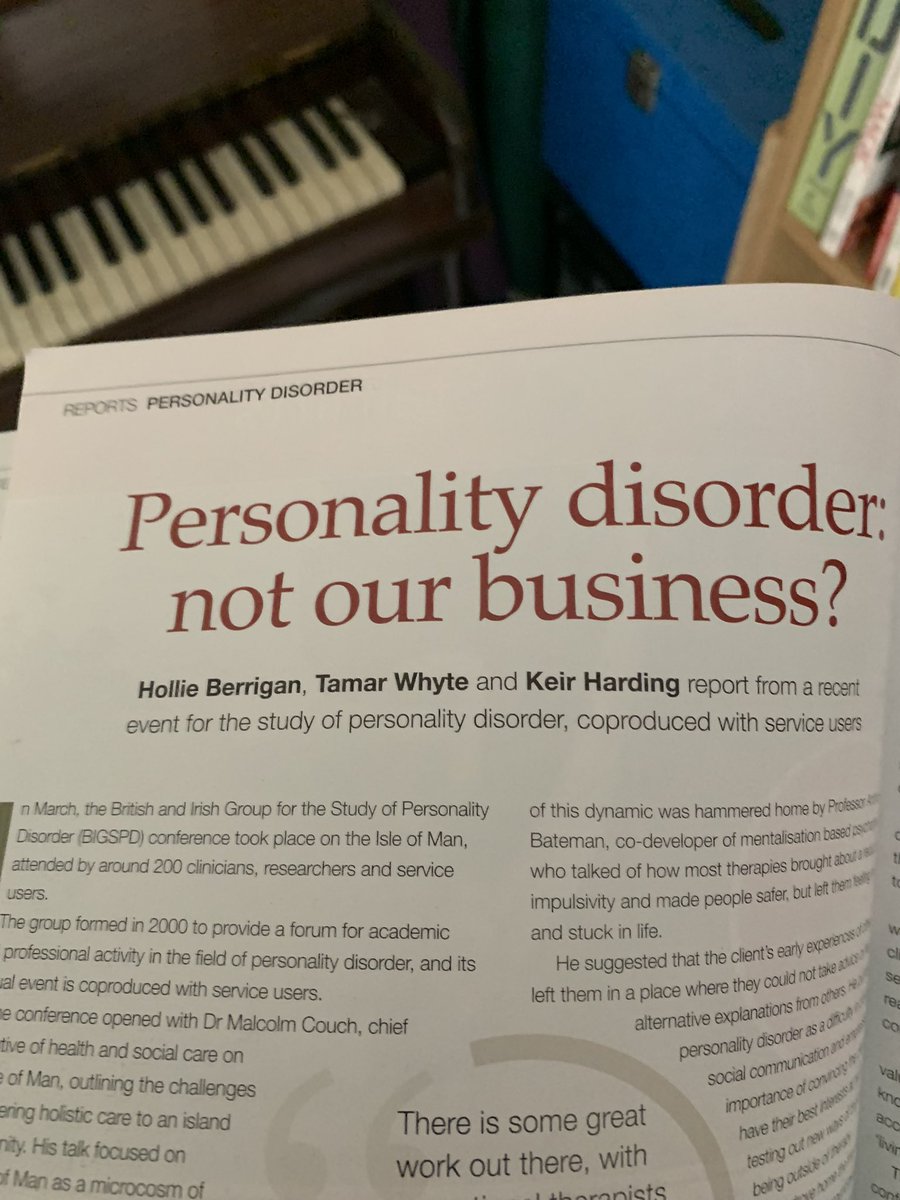I don't think that @theRCOT does this for every #RCOTCasson lecture but it's lovely to see a report that perfectly links with my lecture
Or it would be if it wasn't so bleak. I assure you these issues affect every profession. Look at the picket lines if unconvinved...🧵👇
Or it would be if it wasn't so bleak. I assure you these issues affect every profession. Look at the picket lines if unconvinved...🧵👇
https://twitter.com/theRCOT/status/1648597709593493504
Demand has increased, complexity is higher, staff have to watch needs not being met, people cannot provide the service they want 60% of staff experiencing extreem stress 

"Being told not to work to gold standard due to capacity issues provides a huge amount of stress" and this is partly due to having to hide it from those we work with. We rarely say "if you'd been here 5 years ago you'd be getting much better treatment". We have to pretend... 

The pain of going through this is described brilliantly by @DrChloeBeale 

Why? Because if we want to keep an NHS (and despite working privately, I know I do) We need to create an environment people want to work in.
Imagine this being your day in work 👇👇👇
Imagine this being your day in work 👇👇👇

If they don't like it they can leave!
They are. In multitudes.
13%of the NHS mental health workforce left in 21-22
22000 nurses left the NMC register in 2020
2/5 jnr Dr's can't wait to leave
And an extra 5% won't change this
They are. In multitudes.
13%of the NHS mental health workforce left in 21-22
22000 nurses left the NMC register in 2020
2/5 jnr Dr's can't wait to leave
And an extra 5% won't change this

So everyone in this system is stressed. Staff are encouraged to develop resilience while trying to put out an inferno with a watering can. People aren't nice to each other in these circumstances (they were not nice to me) 

So what does this mean for thefuture? Nothing inspiring. 1/4 OTs want to leave too. For every person who leaves, it gets harder for those who stay. 

We live in a market economy where
the value of labour is determined
by supply and demand
Alas healthcare doesn't really
respond to the market. If you can
afford private healthcare, you may
well not notice the NHS withering.
the value of labour is determined
by supply and demand
Alas healthcare doesn't really
respond to the market. If you can
afford private healthcare, you may
well not notice the NHS withering.
For ages we've relied on the
vocation and altruism of NHS staff,
but a market economy sees these
virtues as a form of stupidity to be
exploited.
We ask them the put up with the
stressful conditions described
above, and offer them some
banged pans for reward.
vocation and altruism of NHS staff,
but a market economy sees these
virtues as a form of stupidity to be
exploited.
We ask them the put up with the
stressful conditions described
above, and offer them some
banged pans for reward.
And while it's not all about money
conditions won't improve until
retention improves. Retention
won't improve until people want to
stay in work. People wont want to
stay in work until the environment
is less toxic.
conditions won't improve until
retention improves. Retention
won't improve until people want to
stay in work. People wont want to
stay in work until the environment
is less toxic.
Mining the healthcare providers of
less affluent countries who will
tolerate awful awful conditions is
an option, but its neither ethical
nor sustainable.
less affluent countries who will
tolerate awful awful conditions is
an option, but its neither ethical
nor sustainable.
And I will be talking about all of this (and more) at the #RCOTCasson lecture, next week Thurs April 27th. Free to everyone. Do come along. 🙂
rcot.co.uk/2023-elizabeth…
rcot.co.uk/2023-elizabeth…
@threadreaderapp unroll
• • •
Missing some Tweet in this thread? You can try to
force a refresh














